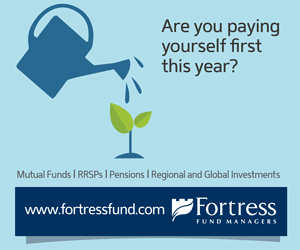Oceania > New Zealand > Economy
Economy in New Zealand
-
APEC economies growth slows to 3.1 pct in Q2
BRUNEI , 2015/11/18 Increase among the 21 Asia-Pacific Economic Cooperation (APEC) economies softened to 3.1 % in the second quarter of 2015, down from 3.2 % in the initial quarter and 3.4 % a year ago, according to an APEC economic analysis released on Tuesday. The statement said the increase slowdown reflected the prolonged weakness in world economic activity as the modest recovery in advanced economies was matched by a general slowdown in emerging market economies. The moderation in GDP levels could be attributed to declining investments and lacklustre exports, according to the statement. "Economies across the Asia-Pacific continue to grow but find themselves in a holding pattern of lower increase in the absence of high trade volumes," said Alan Bollard, Executive Director of the APEC Secretariat. -
Revised IMF forecasts signal gloom on global economic outlook
AFGHANISTAN, 2015/01/20 Low oil prices will not provide a sufficient updraught to dispel the clouds hanging over the world economy, the International Monetary Fund said on Tuesday. In a sign of its increasing gloom about the medium term economic outlook, the IMF cut its world economic increase forecasts by 0.3 % points for both 2015 and 2016, despite believing cheaper oil represents a “shot in the arm”. -
New Zealand's gross domestic product quarter of 2013,
NEW ZEALAND, 2014/03/20 New Zealand's gross domestic product added 0.9 % on quarter in the fourth quarter of 2013, Statistics New Zealand said on Thursday. That was in line with expectations and slowing from 1.4 % in the third quarter. Manufacturing activity gained 2.1 %, driven by increases in food, beverage, and tobacco, and machinery and equipment manufacturing. Manufacturing activity is presently at its highest level since March 2006, the bureau said. Dairy farming and dairy product manufacturing both fell this quarter, next strong increases last quarter, at the same time as production rebounded from the drought before in 2013. -
New Zealand growth hits pre-recession levels, reaching 4-year high of 2.5%
NEW ZEALAND, 2013/04/29 New Zealand's economic increase reached a four-year high in 2012, the best since the country went through a recession that it has long struggled to shake off, official data showed Thursday. Statistics New Zealand (SNZ) said gross domestic product (GDP) expanded 2.5 % in the 12 months to December 2012, buoyed by a 9.4-% rise in primary industries next good growing conditions in the prime half of the year. -
New Zealand growth hits pre-recession levels
NEW ZEALAND, 2013/03/22 New Zealand's economic increase reached a four-year high in 2012, the best since the country went through a recession that it has long struggled to shake off, official data showed Thursday. Statistics New Zealand (SNZ) said gross domestic product (GDP) expanded 2.5 % in the 12 months to December 2012, buoyed by a 9.4 % rise in primary industries next good growing conditions in the prime half of the year. -
Foreign Affairs Minister Murray McCully
NEW ZEALAND, 2013/01/18 Foreign Affairs Minister Murray McCully will travel to Addis Ababa, Ethiopia, next week to attend the African Union Executive Council. "A quarter of the world's states are members of the African Union, and Africa is of increasing interest and importance to New Zealand," McCully says. -
New Zealand Q2 GDP +0.6% On Quarter,2012-09-20
NEW ZEALAND, 2012/09/20 New Zealand's economy expanded 0.6 % in the second quarter of 2012 compared to the previous three months, Statistics NZ said on Thursday. That beat forecasts for an increase of 0.4 % following the downwardly revised 1.0 % expansion in the first quarter (originally 1.1 %). -
NZ business confidence rebounds 2011-07-05
NEW ZEALAND, 2011/07/05 New Zealand business confidence rose in the second quarter as record-low interest rates and soaring commodity prices bolstered a recovery next the deadliest earthquake in 80 years devastated Christchurch in February. -
After the earthquakes, what next for New Zealand’s economy? April 9th, 2011
NEW ZEALAND, 2011/04/09 Statistics New Zealand recently announced that New Zealand posted 0.2 % increase in the fourth quarter of 2010, narrowly avoiding a double-dip recession. Forecasts for 2011 are scarcely better: the IMF has lowered its estimate increase for the year to 1 %, while the New Zealand Institute of Economic Research (NZIER) is forecasting only 0.3 % increase. The large news is the Christchurch earthquakes: a jab-cross combination that has floored the city and its economy. The new NZIER research suggests a 1 % decline in prime quarter 2011 national GDP from the earthquakes. From the rubble, a lot of moving stories about the earthquakes and their aftermath have emerged; but from the economy’s point of view are significant. Prime, everything is harder. Daily life and ordinary economic activity are disrupted, and will be for some time. For example, several supermarkets are still closed, forcing the same number of shoppers into fewer stores. Some schools are running in shifts, so that they can accommodate pupils from closed schools. Second, running the Earthquake Commission (EQC) and the Canterbury Earthquake Recovery Authority (Cera) entirely is essential. To replace normal economic activity, businesses need premises, access to records, finances, telecommunications, supply chains, transportation, insurance and the like. This means they have been finding that, somewhere in this mix, they have to transaction with the EQC. So the EQC, and instantly Cera, set the tone and pace for the recovery. What does this mean for the national economy? If it were normal times, probably not that much. But these are not normal times. The economy is flirting with contraction each quarter, and a 1 % drop in GDP could be enough to push it over the edge and into recession. The wider economy will react to three things. Prime is momentum. Whether you take a real business cycle view or a Keynesian view, the economy needs forward momentum to keep growing. It is difficult to ‘turn the corner’ and get things moving. NZIER’s analysis over the last years suggests that there is very little momentum in the economy. Businesses intend to increase activity and hiring but they have been unable to do it. It looks like the economy needs some external prodding to get it moving. Second is policy. The economy is sluggish because people are not spending. The Savings Working Group (SWG) wrung its hands over the low savings rate amongst New Zealanders, and the consequent shallow capital market and poor retirement planning. In the recession, households increased savings by about 2 % of GDP, just as the SWG wanted. But with amount that saving, who is spending? It certainly isn’t the government, which has chosen this moment to push its own austerity program, with plans to cut public services and shrink the government. Third is recovery management. With consumers sitting on their hands and the government cutting back, the earthquake recovery is thing that can pull the economy out of its funk. New Zealand is receiving a huge injection of overseas cash from insurance payouts, which will boost current production. But money isn’t enough. The way the recovery is managed — how long it takes to process claims, how a lot of claims are disputed, how equitable and transparent the recovery appears — will be just as significant for the mood of Christchurch and therefore the country. This situation represents a challenge and an opportunity for the Key government. The economy isn’t going to start moving by itself anytime any minute at this time, so it has to be prodded into action. In an election year, Key has chosen to pursue austerity measures for most of the country, but the Christchurch recovery needs a good measure of generosity and forbearance. The challenge is to keep austerity from increasing consumer frugality and overwhelming the weak recovery. The opportunity is that spill-over effects from the regional recovery effort can get some momentum into the economy using overseas money. By ring-fencing his generosity to his native Christchurch, Key could be expansionary and austere at the same time. Dr Bill Kaye-Blake is Principal Economist at the New Zealand Institute of Economic Research, Wellington. -
New Zealand Macroeconomic outlook
NEW ZEALAND, 2011/01/01 Macroeconomic outlook 1. New Zealand has been able to ride out the world financial crisis better than a lot of other advanced nations. This was because of request from fast-growing Asian markets and the robust Australian economy, a flexible exchange rate, and the absence of a banking crisis. In addition, a significant fiscal and monetary policy stimulus cushioned the blow from the world crisis. Nevertheless, the crisis highlighted long-standing vulnerabilities due to sizable household and external deficit.
- Trending Articles
-
- ABIDJAN: Cote d’Ivoire to re-emerge as a tourism destination
- GHANA: Ghana increases spending on transport infrastructure
- NIGERIA: Nigeria’s e-commerce industry shows growth potential
- SOUTH AFRICA: South Africa to extend ICT reach
- MACAU: Portugal invited to be “partner country” of the Macau International Fair 2016
- UNITED STATES: Trump says Britain should leave EU







